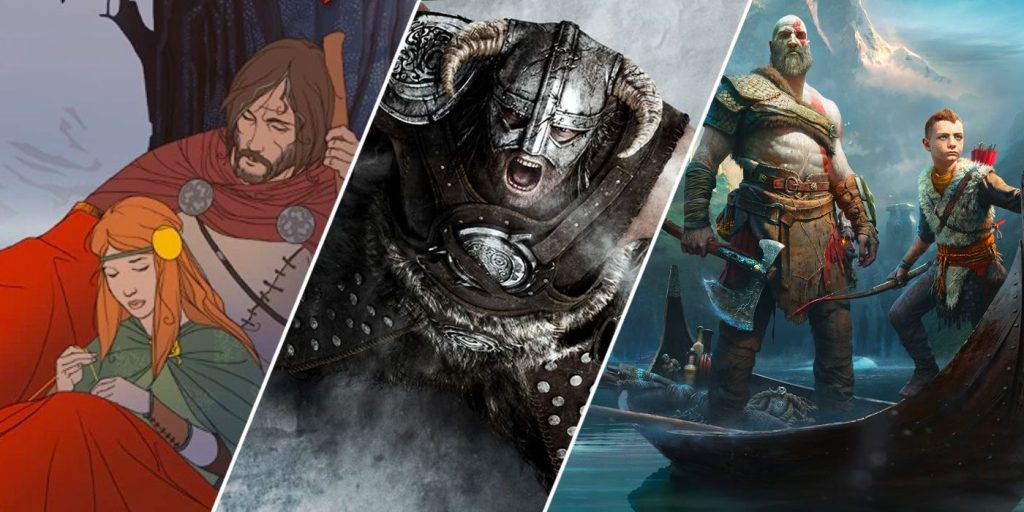
With the growing popularity of video games, creators are constantly seeking new and exciting sources of inspiration to captivate their audiences. One such inspiration that has captured the imaginations of gamers worldwide is Norse mythology. The allure of these age-old tales filled with gods, giants, and epic battles has seamlessly infused with the digital world, giving birth to some of the most captivating video game experiences. In this article, we will explore the profound influence of Norse mythology on popular video games and the ways in which developers have brought these captivating tales to life.
1. Embracing the Pantheon of Gods:
Norse mythology boasts an intricate pantheon of gods, each with their own unique personalities and powers. This rich tapestry has found its way into video games, where developers have sought to recreate the fierce deities and their mythic realms. Games like “God of War” have taken players on a journey alongside the god-like protagonist, Kratos, as he battles against the gods and monsters of Norse mythology. The game beautifully intertwines the richness of the original mythos with innovative storytelling mechanics, creating an experience that is both epic and immersive.
2. The Allure of Epic Battles:
One of the defining features of Norse mythology is its tales of epic battles. These legendary confrontations have become a staple in video games, with developers crafting breathtaking combat sequences that pay homage to this mythical source material. Games like “God of War” and “Assassin’s Creed: Valhalla” enable players to step into the shoes of Norse warriors, participating in brutal battles against both mortal enemies and supernatural creatures. The use of realistic graphics, visceral combat mechanics, and intricate level designs all serve to create immersive experiences that evoke the grandeur and intensity of Norse mythological battles.
3. Exploring the Mythical Realms:
Norse mythology is not only about gods and battles but also encompasses a vast landscape of mythical realms. From Asgard, the realm of the gods, to Midgard, the world of humans, and Jotunheim, the land of giants, these realms provide the perfect backdrop for video game adventures. Developers have meticulously recreated these realms, paying attention to even the smallest details to ensure an authentic representation. Games like “Hellblade: Senua’s Sacrifice” and “The Banner Saga” take players on immersive journeys through these mythical realms, offering breathtaking landscapes, unique characters, and engaging narratives that are deeply rooted in Norse mythology.
4. Connecting Players with Norse Culture:
Video games have the ability to transport players into different worlds and cultures, and Norse mythology has emerged as a vehicle to achieve this. By incorporating elements of Norse culture, tradition, and historical settings, developers have created games that not only entertain but also educate and expose players to the wealth of Norse heritage. “Assassin’s Creed: Valhalla,” for example, brings Viking culture and history to life through its detailed exploration of ninth-century England. This intersection of entertainment and education has further amplified the impact of Norse mythology in the world of video games.
Conclusion:
The influence of Norse mythology in popular video games is undeniable. From captivating tales of gods and battles to immersive mythical realms and cultural connections, Norse mythology has enriched the gaming landscape and captivated players with its timeless allure. As gaming technology advances, we can look forward to even more seamless integration of Norse mythological elements, creating experiences that seamlessly merge the realms of ancient legend with the digital world. So, whether you’re a gaming enthusiast or a mythology lover, it’s indeed an exhilarating time to embark on Norse-inspired gaming adventures.


